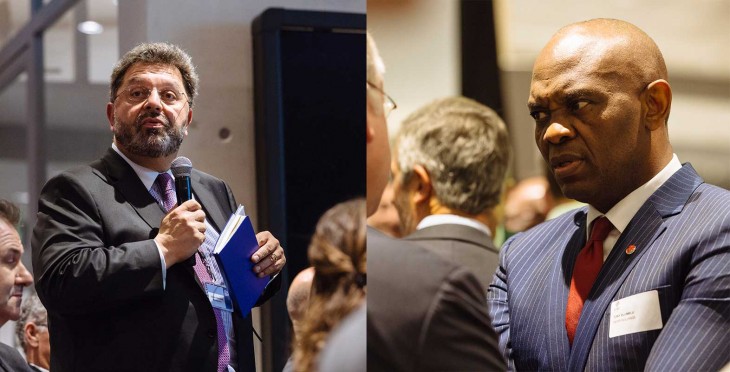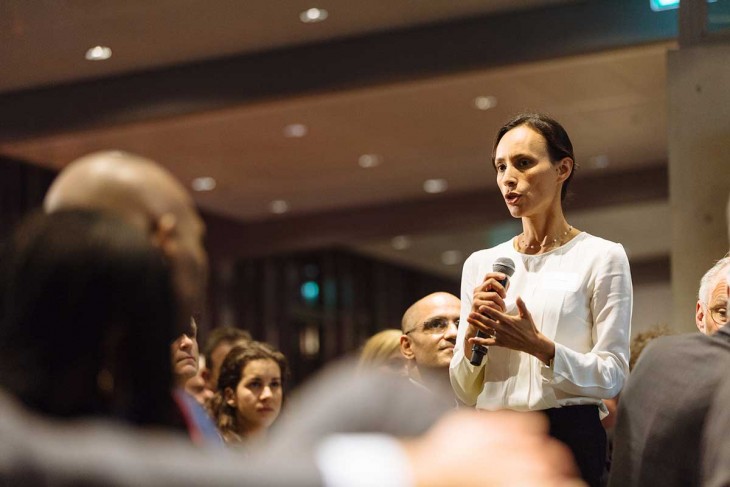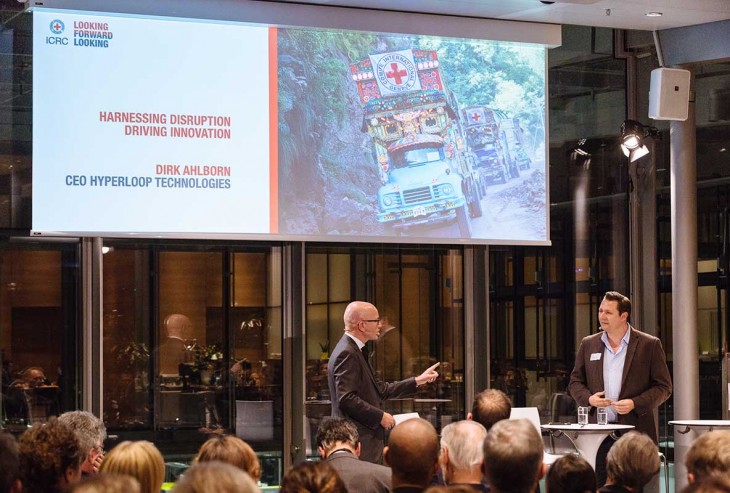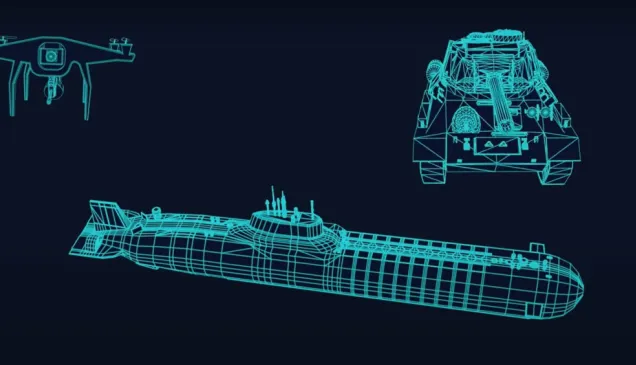Private sector engagement: Making the case for collaboration
Annual meeting of the Corporate Support Group issues call for new partnerships to drive innovation and find solutions.
To innovate, you need to collaborate. And at a time of increasing complexity and change, this means engaging with new partners who might not seem obvious at first. They just need to share the same vision and passion.
This was the overarching message coming out of the Corporate Support Group's (CSG) annual meeting on Monday night. The event was hosted by the École Polytechnique Fédérale de Lausanne (EPFL) at Campus Biotech in Geneva.
Around 130 people including the ICRC's senior leadership, CSG members, representatives of the Lake Geneva business, academic and political communities attended the event.
The main theme for the night was collaboration – and the need for the ICRC and other organizations to reach out to new partners to find innovative solutions to the sometimes overwhelming problems they are confronted with.
Peter Maurer, President of the ICRC, emphasized that "The scale and nature of crises are bigger and more complex than we are used to. The challenge for us is changing the way we respond. It's a new situation and we need new ways of responding".
To emphasize the scope of the issue, four principal "disruptions" affecting the ICRC today were presented and served as a backdrop for the discussions:
- war and violence are having a hugely disruptive impact on lives and livelihoods.
- protracted armed conflict is causing total system failure, leaving a whole generation without essential services, such as health and education.
- the normative system that governs belligerents is imploding.
- the rapid and continuous changes to our economic, social and technological environment.

In addition to the members of the Corporate Support Group, guests from very diverse sectors joined the event, such as Jean-François Manzoni, President of IMD Business School, or Tony Elumelu, Chairman of Heirs Holdings. CC BY-NC-ND / ICRC
These disruptions are forcing humanitarians to think and operate differently. And this involves collaborating with actors with which humanitarians did not traditionally collaborate with. But beyond collaboration, the disruptions are also bringing to light another question, a more systemic one: what is humanitarian action today? What is it comprised of? Are education or psychosocial health for example basic humanitarian needs, even though they have traditionally not been in the portfolio of activities of humanitarian actors?
What seemed to emerge, and which was echoed by a member of the CSG, is that "existing paradigms no longer work." And this is not necessarily specific to the humanitarian sector, this applies everywhere: international humanitarian law, the world of politics, the economy as well as the humanitarian sector.
A Permanent Representative to the Office of the United Nations double-downed on this idea when he said that "We are living through a crisis never seen before and the system is failing. The only way to cope is to find new partnerships even with people whom you may have never spoken to before in order to build new relationships and find new solutions."

Esperanza Martinez, ICRC's head of health. CC BY-NC-ND / ICRC
An evening rich in interventions, in opinions and ideas, where all agreed on the importance of developing collaborative and innovative thinking, was also a stage to insist on the all too many humanitarian needs. The reality, as explained by Esperanza Martinez, the ICRC's head of health, is that crumbling systems in contexts such as Yemen mean that millions of people have no access to health care.
Participants discussed the role new technology can have in responding to the breakdown of systems and to the humanitarian needs that emerge.

Yves Daccord, Director General of the ICRC, and Dirk Ahlborn, CEO of Hyperloop discuss the opportunities presented by new technologies. And to seize these opportunities, organizations have to bring together individuals who share the same passion and motivation. "You to adopt an inclusive approach, be transparent and admit that you don't have all the answers," Dirk Ahlborn said. CC BY-NC-ND / ICRC
Charlotte Lindsey-Curtet, the ICRC's director of communication and information management, agreed that it was important to harness technological change, arguing that standing still was not an option.
She pointed to existing ICRC partnerships with the Federal Institute of Technology in Lausanne (EPFL), the IMD business school in Lausanne and the World Economic Forum as examples of the need to be forward thinking. "How can we transform ourselves in a way that beneficiaries are expecting us to transform?" she asked.
Charlotte Lindsey-Curtet said notions such as proximity were already changing due to advances in information and communications technology and big data analytics, on which the ICRC is already collaborating with the EPFL. However, she said the explosion of personal data represented a major protection challenge for the ICRC: "In an insecure environment, your digital identity can be a major vulnerability."
Closing the event, Peter Maurer said the speed of change meant new forms of collaboration were inevitable in order to unleash the potential of innovation and technology to find solutions.
"Things that are not in synch are all happening at the same time. So how do we create sustained innovation in an environment in which speed plays such a crucial role?"
For more on ICRC innovation and interaction with the private sector, please see our Global partnerships for humanitarian impact and innovation - GPHI2 blog.
The ICRC and the private sector
Participants at the event also discovered the latest publication brought together by ICRC's historian, Daniel Palmieri. In The ICRC and the private sector, we look at 153 years of collaboration between the institution and the sector who was, after all, at its inception.
We are delighted to share here this publication, in which you can read remarkable and inspiring stories of interconnection between corporate actors and the ICRC:



